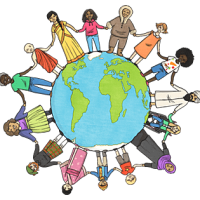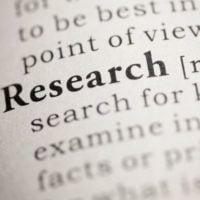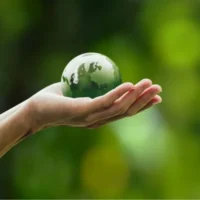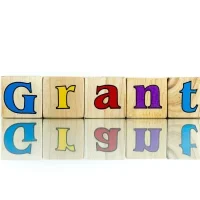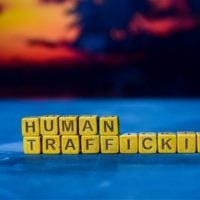[Jan 2024]
This Fund empowers Women’s Rights and Young Activists from Marginalized Groups
Deadline: Ongoing Opportunity
Through Young African Feminist Fund, the African Human Rights Network (AHRN) is providing support to numerous young feminist movements across 14 African countries, both registered and non-registered.
The African Human Rights Network (AHRN) is a dedicated organization that empowers and supports individuals and organizations committed to human rights and activism throughout Africa.
In the efforts to support feminists, they prioritize the nurturing of young feminist founders who are engaged in impactful projects and initiatives. They actively seek out individuals who have demonstrated a track record of success but face limited access to funds or require additional skills in areas such as communication, fundraising, and project implementation. To address these needs, they provide comprehensive training to these young feminists and subsequently invite them to apply for funding through the closed funding opportunities.
At the core of the mission is the advancement of women’s rights and the empowerment of young activists, including land rights and environmental defenders throughout Africa. They offer comprehensive training on human rights and assist participants in drafting and implementing their own human rights projects. Following the training, they provide financial support and ongoing guidance to grassroots organizations and individual human rights defenders, helping them bring their projects to fruition.
Fund Mission
- The mission of AHRN Fund is to support and empower grassroots movements or individual activists who work and/or are part of marginalized groups, particularly women, and indigenous communities to have a voice in decision making processes related to environmental and any other human rights issues and are able to advocate for policies that priotize their needs. The goal is to create a sustainable equitable, inclusive real impact on the lives of these marginalized communities by providing resources and support to help them advocate for their rights and well-being.
- The fund aims to support projects and initiatives led by young feminist women that promote sustainable development, clean energy and conservation of natural resources, sexual reproductive health and education. They believe in the power of grassroots young women-led solutions and they priotize funding opportunities that involve empowering grassroots feminists in Africa. Additionally, they will focus on supporting education and awareness programs that educate people about the importance of environmental stewardship and the impact of the actions on the planet.
Vision: To create a world where all people have equal access to the benefits of healthy environment, sexual reproductive health, education and a sustainable future.
Objectives
- Objective 1: Empower and support young feminist movements:
- The first objective of the Young African Feminist Fund is to empower and support young feminist movements across Africa. This involves providing financial support, comprehensive training, and ongoing guidance to young feminist founders who are working on impactful projects and initiatives. By nurturing these movements and addressing their needs, they aim to strengthen their capacity to advocate for women’s rights and contribute to social change.
- Objective 2: Foster a vibrant community of young activists:
- AHRN is deeply committed to fostering a vibrant community of young activists throughout Africa. Through initiatives like the Young African Defenders in Actions (YADA Network) and the Activist Lab – Africa, they create platforms for young activists to connect, collaborate, and share their experiences. These networks serve as essential channels for identifying and engaging with beneficiary partners, fostering a sense of community, and amplifying the voices of young activists across the continent.
- Objective 3: Advance women’s rights and empower young activists:
- At the core of AHRN’s mission is the advancement of women’s rights and the empowerment of young activists, including land rights and environmental defenders. They offer comprehensive training on human rights and assist participants in drafting and implementing their own human rights projects. By providing financial support and ongoing guidance to grassroots organizations and individual human rights defenders, they aim to help them bring their projects to fruition and create lasting impact in their communities. Through these efforts, they strive to uphold equality, justice, and dignity for all.
Funding Approach
- As a feminist fund or women-led fund the organization priotizes funding for grassroots feminist organization that are led by and serve marginalized communities. They take an intersectional approach to funding, meaning that they recognize and address the ways in which different forms of oppression, such as racism, intersect and impact the experiences of individuals.
- In practice this means that the funding priotizes and ensures that decision making processes are informed by an understanding of the intersections of race, class gender, sexuality, ability, and other identities. They actively seek out and prioritize funding for organizations that are led by individuals from marginalized communities, and that are working to address the specific and unique needs and struggles of those communities.
- Additionally, they make sure to engage with the grassroots young women led feminist organizations they fund and their communities through meaningful consultation and feedback to support their self-determined goals and priorities, and are open and responsive to feedback and criticism on the funding practices and policies.
Funding Mechanism
- The funding mechanisms include a combination of individual donations and foundation grants. The organization specializes in providing funding to grassroots young women-led feminist organizations that are working towards gender equality, climate justice and the empowerment of marginalized communities.
- The grantee partners are typically small to medium-sized organizations that are led by young women and focus on grassroots activism and community-based work. They work in areas of climate justice, gender-based violence prevention, and economic empowerment for marginalized communities.
- They manage accountability and reporting through a thorough grant application process, where grantee partners are required to submit detailed project proposals, budgets, and measurable outcomes. Additionally, they conduct regular check-ins and evaluations to ensure that grantee partners are meeting their project goals and using funds appropriately.
- They also have two types of application calls where grantees choose whether the funds they are applying for is rapid or general funding and once the fund is approved to meet the rapid requirement they give out the funds in a period of 5 days.
- Once a decision has been made for the general funding they are able to quickly disseminate funding within a timeframe of 2-4 weeks. All this is done to ensure that grantee partners can begin their work as soon as possible and make a meaningful impact in the communities they serve.
Eligibility Requirements
- A feminist movement/group/organization both registered or unregistered
- Alignment with the Fund’s Mission
- Innovative approach that shows impact and sustainability
- Capacity building needs with potential for collaboration
Selection Criteria
The selection criteria for the Young African Feminist Fund are based on the following factors:
- Alignment with the Fund’s Mission: The projects and initiatives being considered for funding should align with the mission of the fund, which is to support grassroots movements or individual activists who work and/or are part of marginalized groups, particularly women, and indigenous communities.
- Young Feminist-Led: The fund prioritizes projects and initiatives that are led by young feminists, particularly young women. The applicants should demonstrate a commitment to feminist principles and the advancement of women’s rights.
- Impact and Sustainability: The fund seeks projects that have the potential for real impact and can contribute to sustainable development. The applicants should demonstrate how their projects address critical issues, create positive change, and have a lasting impact on the lives of marginalized communities.
- Innovative Approach: The fund values innovative and creative approaches to addressing social issues. The applicants should present unique and effective strategies that challenge existing norms and systems of oppression.
- Capacity Building Needs: The fund looks for individuals or organizations that have demonstrated a track record of success but face limited access to funds or require additional skills in areas such as communication, fundraising, and project implementation. The applicants should be open to receiving comprehensive training and capacity building support.
- Intersectionality: The fund recognizes and addresses the intersections of various forms of oppression, such as racism, classism, gender discrimination, and ableism.
- Financial Accountability: The fund expects applicants to demonstrate financial accountability and transparency.
- Community Engagement: The fund values meaningful consultation and engagement with the communities being served. Applicants should demonstrate a strong connection and involvement with the communities they work with, and their projects should reflect the self-determined goals and priorities of those communities.
- Potential for Collaboration: The fund encourages collaboration and partnership among organizations and activists.
- Evaluation and Learning: The fund seeks applicants who are open to feedback and willing to engage in continuous learning and improvement.
For more information, visit AHRN.
This simple-to-access funds supports local efforts in Women, Peace and Security (WPS)
Deadline: Ongoing Opportunity
With the support of the US State Department’s Secretary’s Office on Global Women’s Issues, Search for Common Ground (Search) is launching a global Women, Peace and Security Rapid Response Fund to support local efforts in women, peace and security (WPS).
The SHE WINS Rapid Response Fund (RRF) is a global funding mechanism administered by Search for Common Ground. It is designed to respond to urgent needs in the current women, peace and security (WPS) landscape across 78 countries (listed below). The objective is to provide simple-to-access funds directly to a diverse range of women-led initiatives to respond to emerging crises, and seize new openings for the advancement of WPS outcomes in fragile and conflict affected contexts.
The rapid response funding will support a diverse range of women-led or women-serving initiatives to respond to and seize new openings for the advancement of WPS in fragile and conflict affected contexts. The rapid response funds will support local groups to respond to changing contexts, including closing contexts or preventing backsliding on previous accomplishments.
Thematic Areas
- Initiatives to eliminate barriers, including legal, structural, social, and security-related barriers, to women’s increased, active and meaningful participation in countering violent extremism (CVE), peace processes, and conflict prevention, transformation, or resolution processes.
- Efforts to respond to emerging conflict, violent extremism (VE), crises, or environmental disasters or other WPS settings, which are representative of all affected populations.
- Efforts to leverage and maximize emerging political openings particularly in peacebuilding contexts to promote inclusion in the WPS space.
- Advocacy initiatives and mobilization that may result in the advancement of the WPS agenda such as efforts to address structural barriers to meaningful participation in a formal or informal peace process, including identify effective ways for the inclusion of women and marginalized groups.
- Technical and logistical support to women peacebuilders, negotiators, mediators, advocates, and other stakeholders to participate more effectively in ceasefire negotiations, constitution reform, political dialogues, or peace or mediation processes at the Track I or II level.
- Efforts to mitigate barriers to women’s access to decision-making spaces, catalyze women’s leadership, and elevate the voices of local women peacebuilders to shape the global, international, or national policy environments on peace and security.
Funding Categories
- In-kind support: In-kind support for specific, time-bound activities contributing to WPS work. Activities under this stream may include: travel for key activities, support for one-off activities or convenings, procurement of goods and services, including consultancies, technical assistance. Under this stream, funds will not be issued to the applicant, but the goods or services will be procured by Search and provided as in-kind assistance to the local organization or group.
- Amount: $500 to $25,000
- Timeframe: 3 months or less
- Medium grants: Support to key small initiatives undertaken by local organizations or groups for quick impact. Activities under this stream may include specific deliverables based on responses to changes in the context to protect women’s rights or safety in closing spaces, or new, emerging opportunities to advance inclusive peace and WPS.
- Amount: $25,000 to $100,000
- Timeframe: 3-9 months
- Large grants: Larger rapid response projects will support longer term efforts. Only a small number of awards is envisioned under this stream of funding.
- Amount: $100,000 to $250,000
- Timeframe: 9-12 months
Eligible Countries
- The funding window is currently open for local women-led groups in the following countries: Afghanistan, Algeria, Armenia, Azerbaijan, Belarus, Belize, Benin, Brazil, Burma, Cambodia, Cameroon, Central African Republic, Chad, Colombia, Costa Rica, Côte D’Ivoire, Croatia, the Dominican Republic, the Democratic Republic of the Congo, Egypt, El Salvador, Eswatini, Ethiopia, Georgia, Ghana, Guinea, Guatemala, Haiti, Honduras, Indonesia, Iraq, Jordan, Kazakhstan, Kyrgyzstan, Laos, Lebanon, Libya, Malaysia, Mali, the Marshall Islands, Mexico, the Federated States of Micronesia, Morocco, Mozambique, Nauru, Nicaragua, Pakistan, Palau, Panama, Papua New Guinea, the Philippines, Rwanda, Samoa, Saudi Arabia, Slovakia, Slovenia, Solomon Islands, Sri Lanka, South Sudan, Syria, Taiwan, Tajikistan, Thailand, Timor-Leste, Turkmenistan, Togo, Tonga, Tuvalu, Ukraine, Uruguay, Uzbekistan, Vanuatu, Vietnam, Venezuela, the West Bank and Gaza, Yemen, Zimbabwe.
Eligibility Criteria
- The Women, Peace and Security Rapid Response Fund invites applications from women-led or women-serving groups, including non-governmental organizations and coalitions. The funds are available globally. While applicants do not need to be officially registered as a non-governmental organization, applicants will need to show demonstrable experience in administering successful, and preferably similar initiatives.
Ineligible
- Support to individuals
- Construction or infrastructure activities
- Costs incurred before or after the specified dates of the grant
- Alcoholic beverages
- Explicitly religious activities, including those that involve overt religious content such as worship, religious instruction, prayer, or proselytization
- Costs of entertainment, including amusement, diversion, and social activities and any associated costs are unallowable
- Vehicles
For more information, visit Search for Common Ground.
Gender Equality Grants Program: Call for Proposals
Deadline: Ongoing
The Pulitzer Center is inviting applications for the Gender Equality Grants Program. It is designed to help journalists take to a new level the reporting on issues related to gender equality and the empowerment of women and girls.
Women and girls are disproportionately affected by global crises and face discrimination and violence worldwide. In the fight against the disparities they endure, they show resilience, strength, and leadership.
They aim to support teams that reflect the communities they report on. They hope the Gender Equality Grant can help their partner organizations advance their diversity, equity, and inclusion goals and commitments.
Pulitzer Center a non-profit organization that supports independent global journalism is seeking applications for investigative data-driven projects on issues related to gender equality and the empowerment of women & girls.
Funding Information
- They do not have a budget range. They will consider projects of any scope and size and they are open to supporting multiple projects each year. The average size of a Pulitzer Center grant is $5,000, but may be more or less depending on circumstances.
Eligibility Criteria
- This opportunity is open to U.S. residents and journalists around the world.
- They are open to proposals from freelance journalists, staff journalists, or groups of newsrooms working in collaboration with a project idea.
- They want to make sure that people from many backgrounds and perspectives are empowered to produce journalism.
- They strongly encourage proposals from journalists and newsrooms who represent a broad array of social, racial, ethnic, underrepresented groups, and economic backgrounds.
Application Process
Applications include the following:
- A description of the proposed project in no more than 250 words.
- A thorough publication plan. Letters of interest or commitment from editors and news outlets should be included.
- A preliminary budget estimate, including a basic breakdown of costs. Travel grants cover hard costs associated with the reporting; please do not include stipends for the applicants. Local reporting partner/translator/driver fees are acceptable.
- Three samples of published work, either print or broadcast.
- Three professional references. These can be either contact information, or letters of recommendation. The latter is encouraged when letters from interested producers or editors are available.
- A copy of your curriculum vitae.
For more information, visit https://pulitzercenter.org/gender-equality-grants
Research Grants to combat coordinated Online Abuse that targets African Women
Deadline: Ongoing Opportunity
Do you want to take an active role in combating coordinated online abuse that targets African women journalists, election candidates or other human rights defenders? Code for Africa (CfA) in partnership with Jigsaw, is offering research grants and technical support for evidence-driven analysis into how malign actors coordinate harassment and complaints against African women journalists and fact-checkers across 21 African countries.
The research fellowships come with a financial stipend, along with access to CfA’s in-house research desk, as well as forensic analysts, data scientists and open source intelligence (OSINT) researchers, and machine learning tools for social listening or data/network analysis.
The research fellows will compile evidence about online gender-based harassment into substantive public research reports that shines new light on the actors, networks and motives behind the online harassment and how it undermines public participation of marginalised groups on the African continent. Selected fellows will be invited to share their research at seminars or international events.
Why is CfA offering research grants?
- Detailed evidence and/or actionable insights about how online gender based harassment is coordinated is scarce in Africa. This hampers traditional civil society watchdogs and media from proactively exposing these activities and mobilising for fairer societies.
- The fellows’ research is therefore intended to not only help African media and CSOs understand online gender-based harassment in their country/region, but to establish ways in which they can combat the harassment.
Where will my research be published?
- Fellows’ research output will be published with their home institutions, as well as on this site. CfA will also collaborate with research partners to identify and publish in relevant high-impact, mass-audience media or industry journals. Research can also be published as pre-print papers.
- Depending on the research output, and the report format, the fellows may present their findings at public events or on broadcast media (as guest speakers) rather than in print media. As a principle, CfA will strive for syndication or multiple publications, to maximise impact.
Eligible Countries
The countries covered in this programme are: Burkina Faso, Burundi, Cameroon, the Central African Republic (CAR), Chad, Côte d’Ivoire, the Democratic Republic of the Congo (DRC), Ethiopia, Ghana, Kenya, Mali, Niger, Nigeria, Senegal, Sierra Leone, Somalia, South Africa, South Sudan, Sudan, Tanzania, and Zimbabwe.
Eligibility Criteria
- Individuals or small teams that work in African countries, or that are affiliated with African-based partners can apply.
- All applications will be evaluated by an internal review committee.
For more information, visit Code For Africa.



